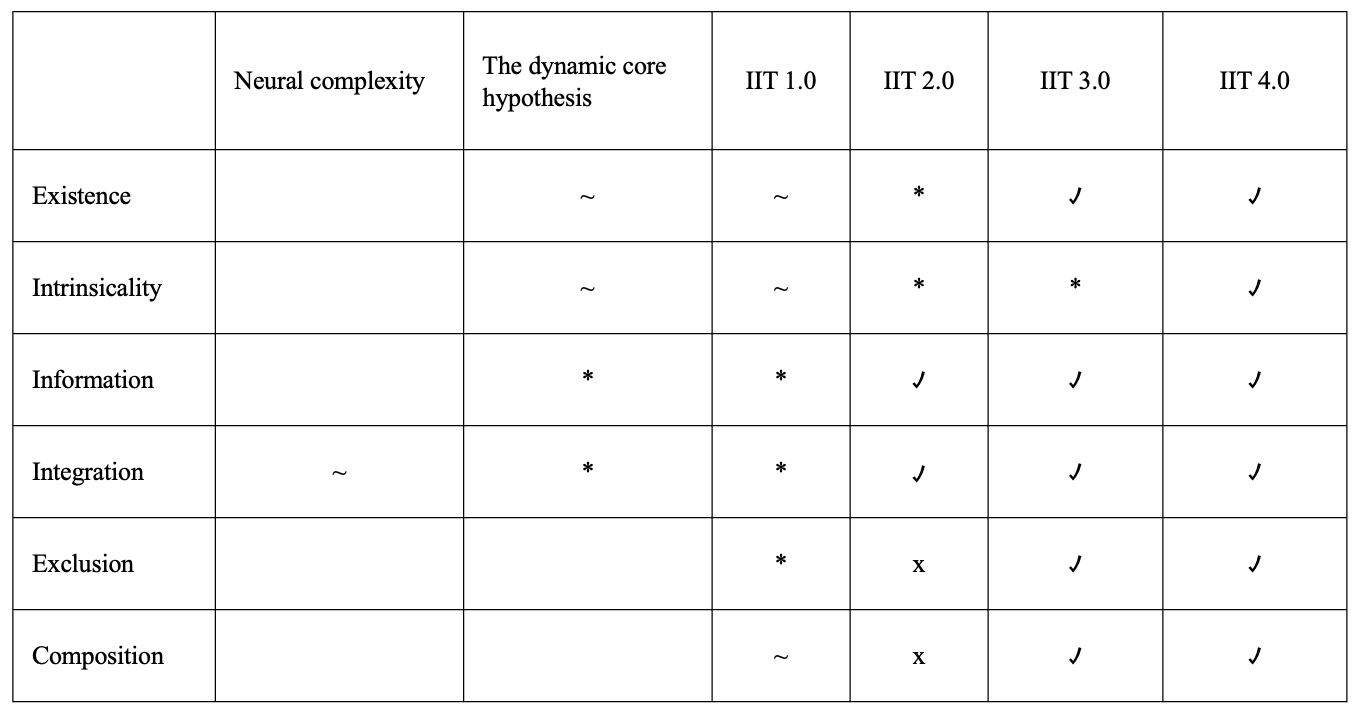Does phenomenology support the axiomatic framework of integrated information theory (IIT)
Publication status: (in preparation)
Integrated information theory (IIT) is a scientific theory of consciousness that proposes mathematics-based explanations for both the presence vs. absence of experience, as well as for the qualitative nature of experience. Rather than starting from what is known about the behavioral or neural correlates of consciousness (which is more typical among neuroscientific theories of consciousness), IIT takes an axiomatic approach. By starting from introspection, phenomenology, and reason, IIT first identifies a set of essential properties of experience (“axioms”), and then infers corresponding necessary and sufficient conditions for a physical entity to be conscious (“postulates”). IIT’s axioms have been criticized for not being axiomatic, and for failing to impose substantive constraints. In this project, we first review how IIT’s axiomatic framework has evolved through the latest version (4.0), and why the theory takes such an approach. We then analyze IIT’s axioms through Husserlian phenomenology. In our analysis, we describe each of IIT’s axioms, and we provide examples from the writings of Husserl that support or contradict each axiom. We conclude with a discussion of how the field of phenomenology is a rich resource for contemporary theories of consciousness, whether or not they take an axiomatic approach.

Figure 1. The evolution of IIT's axioms.
A “~” indicates that the concept was used implicitly.
A “*” indicates it was used explicitly but not in the (final) form of v4.0.
A “✓” indicates it was used explicitly and in the form of v4.0.
An “x” indicates it was absent after having appeared in previous versions.
Posters: Association for the Scientific Study of Consciousness 28, Heraklion, Crete (July 6th – 9th, 2025)
